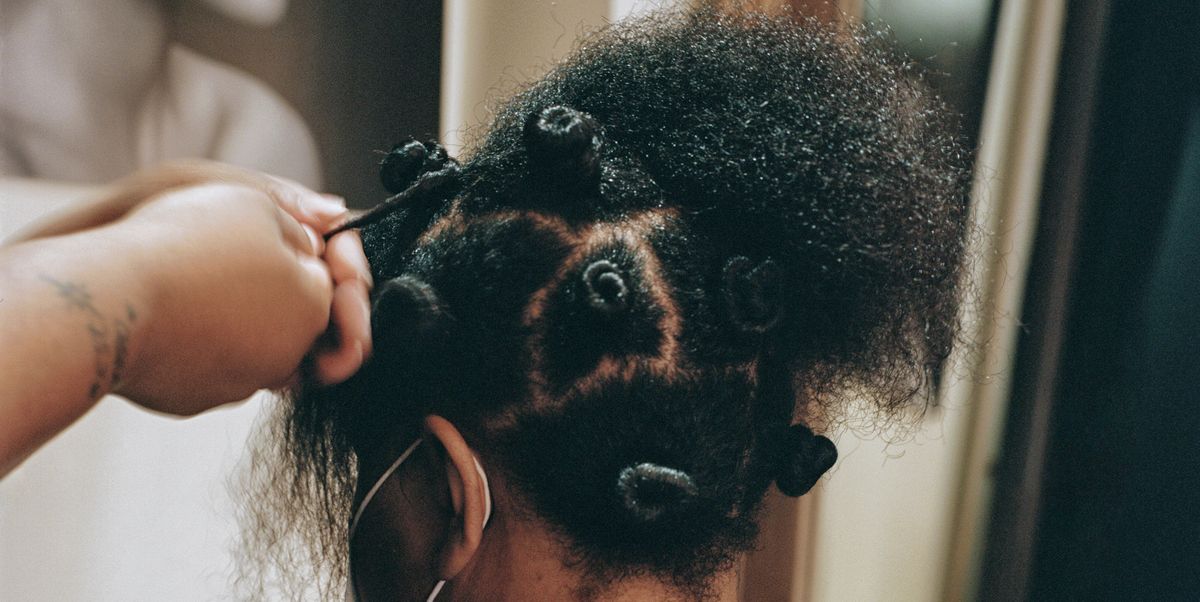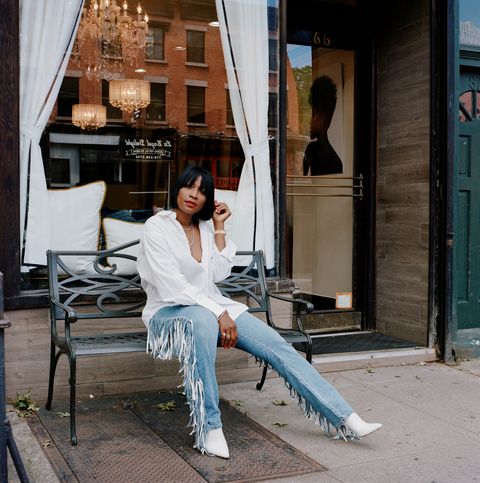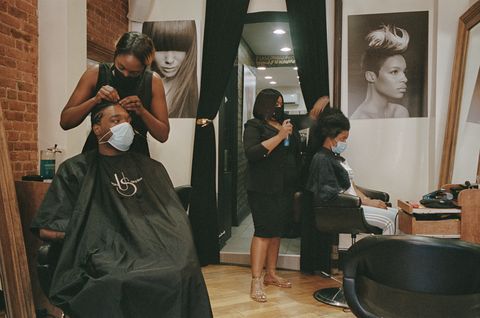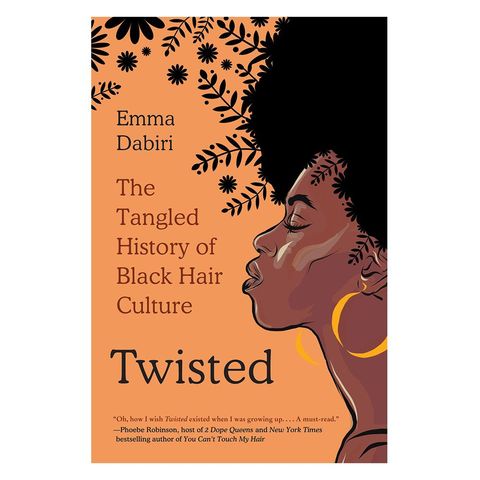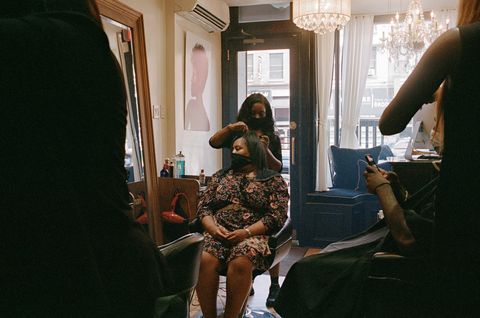The natural instinct is to hug. But Shirley Paul, a salon regular in her forties, offers her stylist, Ursula Stephen, a hesitant elbow bump instead. “It’s my COVID hug,” Stephen says through a protective mask bearing her initials, “US,” of the now socially acceptable greeting. “I miss hugging people,” Paul says. It’s mid-June, and three months have passed since Ursula Stephen The Salon, a seven-year-old beauty mecca located in Fort Greene, Brooklyn, was last open. Stephen—best known as the celebrity stylist to Rihanna, Zendaya, and Serena—suspended business on March 21, when most of New York City was ordered to stay at home, save for essential workers. What qualifies as “essential” is something Stephen has thought a lot about since then. “The one thing white girls were stressed about was mostly their hair color,” she says. “Well, a brown girl, we need everything. We need a conditioner. We need cuts. We need trimming and a relaxer.”
Also, we need time. Because of the intricacy of Black hairstyles—box braids, Senegalese twists, a good press—and the hours it takes to execute them correctly, family-level relationships naturally blossom in this intimate environment. For me, the 12-plus hours in the salon chair with a stylist allowed me to relish my Blackness. Box braids down to the floor at the tender age of seven? Yes, please! Or chatting with my stylist-turned-friend about the woman who asked to touch my hair at work, and the affirming “Can you believe?” that followed. The salon has long been a pillar of the Black community, a place where the most important events are hashed out. Even in the absence of a physical meeting place, Stephen and her stylists continued to meet regularly on Zoom while the salon was closed. “We’d talk business at first, and then we’d gossip,” she says.“‘Girl, you seen that?’ It’s like how we would normally be at the salon.”
Given that COVID-19 has disproportionately affected Black and brown communities, Black salons have had all the more incentive to reopen, as safely and as soon as possible. At Stephen’s, clients now sit six feet apart, blue disinfectant Barbicide can be found at every station, appointments are staggered, and temperatures are checked at the door. All calendars, everywhere, are very, very full. And why wouldn’t they be? For women of color, the salon has long been regarded as a sacred space. “I possess a great affection for the cut and thrust of Black hair salons, the gossip and the drama,” Emma Dabiri writes in her new book, Twisted: The Tangled History of Black Hair Culture. “The hair salon is a site where we can observe a microcosm of national issues, witnessing how, once again, Black hair proved a battlefield on which cultural and racial tensions were reproduced.”
Black hair is inherently political. In 2019, California became the first state to pass the CROWN Act, which outlaws discrimination based on hair type (at press time, it had been enacted in seven states). The legislation was long overdue, inspired by high-profile microaggressions directed toward children at school and women at work. Research shows that Black women’s hair is 3.4 times more likely to be deemed unprofessional in the workplace. In the beauty and fashion worlds, we see our trends stolen and presented on runways without credit, and we can’t help but notice that our physical traits (in some cases, lips or skin tone) only seem to become trendy when a white person chooses to appropriate them via makeup, injections, or even surgery—aka Blackfishing. And yet we prevail with our community—best exemplified by the salon. “The salon is a release from the world,” explains Mika “Constance” English, a stylist at Stephen’s salon. “I’m a therapist, stylist, and friend all at the same time.” Yene Damtew, the owner of Aesthetics Salon in Arlington, Virginia, agrees: “We do more than just hair.” For Black women, she says, the salon represents “a place where clients can come to a communal space and meet new people, make new friends, and build a support system. There are a lot of conversations about racial equality, politics, leadership.”
Just weeks before Stephen’s reopening, and mere blocks from her salon, thousands took to the streets in Brooklyn to protest the unjust murders of Ahmaud Arbery, George Floyd, and Breonna Taylor, and countless other Black lives lost. And, too often, the killers remain free without arrest. At this moment in time, Black Girl Church—a space where most people in the room have seen and been affected by racism, in stark contrast to the number of Americans just waking up to its reality—feels more needed than ever. “When you’re in a hair salon, honey, we’re all sisters,” Stephen explains. “This is where we do it, this is where it is, honey.” It’s a safe haven for Stephen and her stylists, who have already had countless discussions over the years about the murders of Black individuals at the hands of law enforcement. They’re back together in person, talking about activism, police brutality, and loved ones who’ve been lost due toCOVID-19. In person, at least for now.
The veteran stylist welcomes change. “Everything happens for a reason,” Stephen says as she sits outside her salon waving to neighbors in the community. And her community—resilient, creative, and essential—can weather any storm.
This story appears in the September 2020 issue of ELLE.
This content is created and maintained by a third party, and imported onto this page to help users provide their email addresses. You may be able to find more information about this and similar content at piano.io
